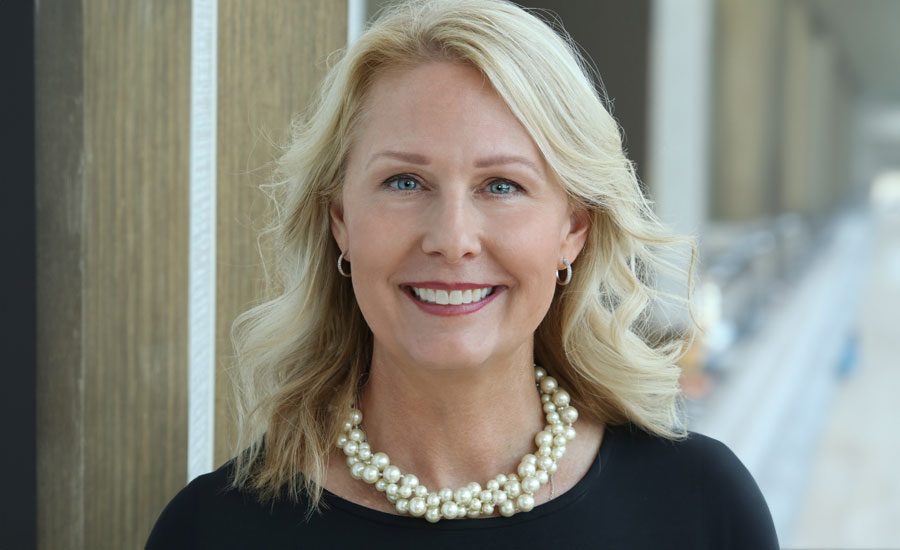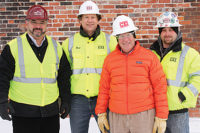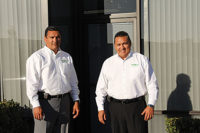Paul Janssen and Duane Nelson are two industry veterans who capitalized on their own strengths to take the helm of Rayco Construction five years ago. Founded by Ray Ellis in 1978, the Minneapolis, Minn.-based company does commercial and residential roofing and service and maintenance work. Janssen and Nelson purchased the company from Ellis when he retired, and despite a tough economy, Rayco has continued to grow every year since.
Looking back, it now seems like a natural progression for two men who were born into the roofing industry. “My dad owned his own roofing company, so I started there and I worked with him for a while,” Janssen said. “I also did some inspecting work before coming to Rayco Construction. I’ve been here roughly 25 years.”
Nelson noted he came into roofing “right out of the womb.” “I started roofing at 18 years old for Rayco Construction, and then moved on to some bigger union shops for a while, then came back here five years ago to purchase it,” he said. “Ray Ellis had built up a pretty good business, and the writing was kind of on the wall for us. Since then we’ve had record-breaking years every year.”
Nelson and Janssen credit their success to a combination of roofing expertise, hard work and the ability to adapt to a changing market. Asked what sets his company apart, Nelson replied, “I think it’s our personal roofing knowledge.”
“Paul and I both spent 17 years on the roof, so when we go in somewhere, we really do know what we’re talking about,” Nelson said. “We’re both pretty hands on. We’re not just salesmen — we’re roofers who turned into salesmen.”
Janssen agreed. “If we’re not selling, we’re visiting the jobsites as the roofs are going down,” he said.
Both men emphasized that the learning never stops, and they credit ongoing training as a key component of the company’s business strategy. “I think the main reason for our growth is we’ve kept up with new technology and new systems,” Nelson said. “That’s the biggest part of it.”
The company is a certified applicator with manufacturers including GAF, Carlisle, Duro-Last, Johns Manville and Versico, and Nelson credits the manufacturers’ training programs with helping keep his crews up to speed and letting his foremen know what to be on the lookout for. “We do extensive, extensive training with our guys in our own warehouse,” Nelson said. “We don’t accept anything less than a score of 10 out of 10 on everything.”
That training includes safety, noted Janssen. “We conduct safety meetings once a week, and our field superintendent has ongoing training to keep us current, updating our guys on safety and fall protection.”
The major challenge of the Twin Cities market is obvious, according to Nelson. “The winters — the snow and the ice can make it pretty tough,” he said. Being flexible with scheduling helps, and the company will tackle jobs in warmer climates during the winter months to keep crews busy. “This year we did a big project in Missouri, so we kept the guys busy all winter down there,” Nelson said. “We also do a lot of service work in the winter, including shoveling the roof off.”
Recent high-profile jobs in the Twin Cities area include St. Patrick’s Church of Edina, a challenging project made even tougher by the convoluted concrete substrate. “The roof is made up of a bunch of big concrete vaults, and it is shaped like a bunch of W’s,” Nelson said. “Before we started I had 10 meetings with GAF down there to figure out how to put the roof on it. Another thing that was tough about it is it is visible from the ground. It’s only about 12 feet high. Everything had to be done perfectly, and the sheets couldn’t have the slightest wrinkle.”
The solution chosen was a 60-mil GAF TPO membrane, adhered to RhinoBond plates that were hammer-drilled into the concrete. Nelson noted that parishioners and church officials were pleased with the result. “They were extremely happy and signed a contract for work on additional buildings.”
Another recent project was the re-roofing job for an Interplastic Corp. facility that featured numerous penetrations. “It’s a chemical plant with lots of pipes coming out of the roof,” Janssen said. “There was no access to probably 80 percent of the sections. We would have to cross two or three sections to get to another section — through a bunch of pipes and around pies and over pipes. Material had to be moved by hand.”
Janssen praised the thoroughness and dedication of the workers, who handled the numerous details without a hitch. “The key was a good crew there that did everything right, and obviously it gets inspected afterward,” he said.
Janssen and Nelson plan to keep building on the company’s strengths. “We like to see people grow with the company,” Nelson said. “That’s really rewarding to me — people moving up the ranks, foremen becoming salesmen, laborers becoming foremen. It’s kind of cool when you see the families that have been here a long time, and watch their kids grow up. And it’s a big responsibility, I think.”
Janssen summed up the key to his company’s success in two words: “Hard work.”
But there is more to it than that, noted Nelson. “This might sound crazy, but every day is satisfying to me,” he said. “I love my job. We go out every day and give 110 percent. There’s no good day over a bad day.”
Nelson has one regret. “We should have bought the company 10 years ago,” he said.









